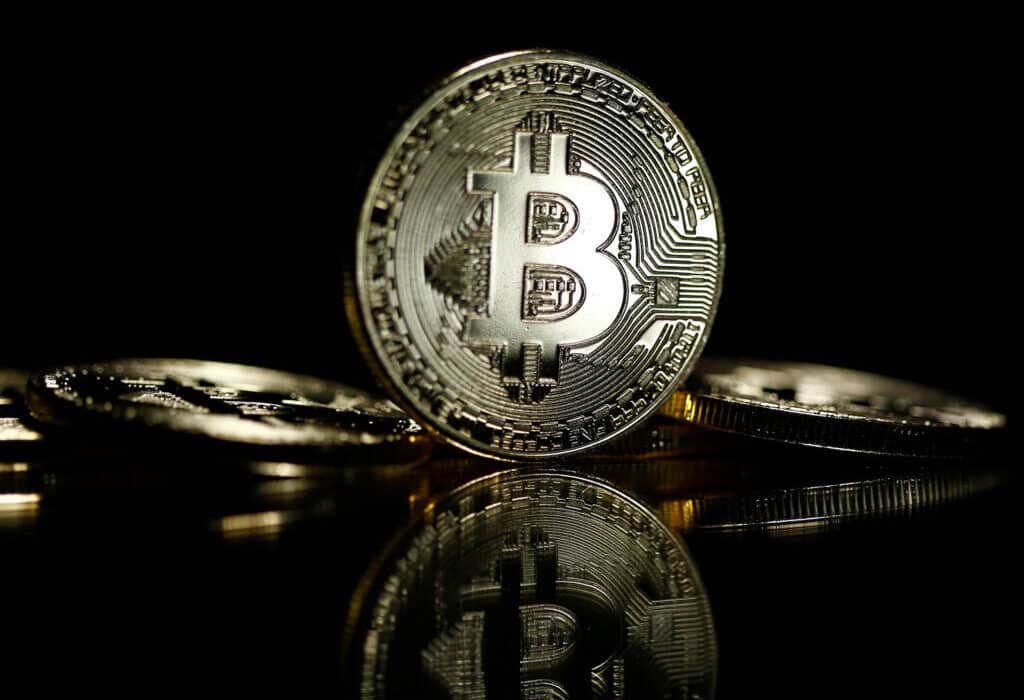Bitcoin Investment Debate: Is It a Profitable Asset or Uninvestable?
Bitcoin’s recent bull run, which saw the cryptocurrency surge past $40,000, has captured the attention of institutional investors and financial institutions worldwide. However, not everyone shares the optimism surrounding Bitcoin as an investment.
Gerald Moser, Chief Market Strategist at Barclays Private Bank, recently dismissed Bitcoin as an “uninvestable asset.” This article delves into Moser’s perspective, compares Bitcoin to other volatile assets, and explores why other organizations like MicroStrategy and PayPal remain bullish on Bitcoin.
Barclays Strategist: Bitcoin is ‘Uninvestable’
Bitcoin’s Volatility
Gerald Moser has expressed skepticism about Bitcoin’s role as an investment asset due to its extreme volatility. The dramatic price swings, while profitable for some, make Bitcoin unsuitable for traditional investment portfolios.
- Institutional Concerns: Moser highlighted that Wall Street investors are generally averse to highly volatile assets, even if they promise significant returns.
- Historical Volatility: Events like the March 2020 sell-off, where Bitcoin plunged alongside equities, reinforce concerns about its stability.
Moser’s Comparison to Other Assets
Moser compared Bitcoin to other risk-prone assets, such as oil and equities, emphasizing their shared susceptibility to external shocks. He suggested that investors might abandon Bitcoin if the cryptocurrency faces significant challenges, much like other speculative investments.
Goldman Sachs’ Pessimistic Take on Bitcoin
Barclays is not the only major financial institution to question Bitcoin’s viability as an asset class. Goldman Sachs previously advised its clients against investing in Bitcoin, citing similar concerns about its volatility and lack of inherent value.
- Not an Asset Class: Goldman argued that Bitcoin does not qualify as an asset class due to its speculative nature.
- Volatility Evidence: The bank pointed to Bitcoin’s price fluctuations during the 2020 market crash as proof of its instability.
Support for Bitcoin: The Bullish Perspectives
While skepticism persists among some financial strategists, others view Bitcoin as a promising asset with substantial growth potential.
MicroStrategy: A Bitcoin Evangelist
MicroStrategy, a business intelligence firm, made headlines by purchasing over 70,000 Bitcoin in 2020. CEO Michael Saylor has emerged as one of Bitcoin’s most vocal advocates, citing several reasons for his bullish stance:
- Educational Initiatives: Saylor offers free courses on understanding Bitcoin’s value and technology.
- Bold Claims: He has even suggested that Bitcoin has divine origins, stating that “God could have created BTC.”
PayPal’s Crypto Integration
During the Web Summit, PayPal CEO Dan Schulman expressed optimism about digital currencies, including Bitcoin. PayPal has since integrated cryptocurrency services, allowing users to buy, sell, and hold Bitcoin on its platform.
Institutional Adoption of Bitcoin
Despite divided opinions, Bitcoin continues to gain traction among major financial institutions:
- Mainstream Banks
- Global banks are exploring cryptocurrency-related services and integrating blockchain technology into their operations.
- Hedge Against Inflation
- Investors increasingly view Bitcoin as a hedge against inflation, especially in the current economic climate.
- Corporate Interest
- Companies like Tesla, Square, and MicroStrategy have added Bitcoin to their balance sheets, signaling confidence in its long-term potential.
The Case for and Against Bitcoin Investment
Arguments Against Bitcoin
- Volatility
- Bitcoin’s price is prone to dramatic swings, making it unpredictable and risky for traditional portfolios.
- Speculative Nature
- Critics argue that Bitcoin lacks intrinsic value, relying heavily on market speculation for its price.
- Regulatory Uncertainty
- Unclear or unfavorable regulations could hinder Bitcoin’s adoption and growth.
Arguments for Bitcoin
- Decentralization
- Bitcoin’s decentralized nature makes it independent of government control and monetary policy.
- Store of Value
- Often referred to as “digital gold,” Bitcoin is increasingly seen as a reliable store of value.
- Institutional Backing
- Growing interest from institutions adds credibility and stability to the cryptocurrency market.
Bitcoin Compared to Other Assets
| Feature | Bitcoin | Gold | Equities | Oil |
|---|---|---|---|---|
| Volatility | High | Low to Moderate | Moderate to High | High |
| Intrinsic Value | Debated | Yes | Yes | Yes |
| Hedge Against Inflation | Yes | Yes | No | No |
| Global Adoption | Growing | Established | Established | Established |
Conclusion: The Bitcoin Investment Debate
The debate over Bitcoin’s viability as an investment asset highlights its dual nature—promising yet polarizing. While strategists like Gerald Moser and Goldman Sachs view Bitcoin as a speculative and uninvestable asset, others, including MicroStrategy and PayPal, see its immense potential as a store of value and a transformative financial tool.
As Bitcoin continues to gain traction among institutional investors and corporations, the cryptocurrency’s role in the global financial ecosystem is becoming increasingly significant. However, potential investors must weigh the risks of volatility and regulatory uncertainty against the opportunities for substantial growth.
To learn more about the innovative startups shaping the future of the crypto industry, explore our article on latest news, where we delve into the most promising ventures and their potential to disrupt traditional industries
Disclaimer: The information provided is not trading advice, Bitcoinworld.co.in holds no liability for any investments made based on the information provided on this page. We strongly recommend independent research and/or consultation with a qualified professional before making any investment decisions.




